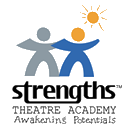Engaging in life skills activities is essential for students to thrive both academically and personally. These activities can help develop critical abilities such as communication, problem-solving, emotional intelligence, and financial literacy. Below are the most important life skills activities for students, categorized by key areas of development:
1. Communication Skills
- Debates and Public Speaking:
- Participating in debates or joining a public speaking club like Toastmasters improves articulation and confidence.
- Group Discussions:
- Engage in structured discussions to practice expressing opinions and listening actively.
- Writing Exercises:
- Focus on resume writing, email drafting, or essay writing to enhance clarity and professionalism.
2. Time Management and Organization
- Task Prioritization Activities:
- Use tools like the Eisenhower Matrix to learn how to prioritize tasks based on urgency and importance.
- Study Planners:
- Practice creating weekly schedules and sticking to them.
- Project-Based Learning:
- Participate in long-term projects to understand planning, execution, and deadlines.
3. Financial Literacy
- Budgeting Games:
- Use simulated activities like creating a monthly budget with a fixed income to manage expenses.
- Savings Challenges:
- Set small savings goals or track expenses using apps to build a habit of financial awareness.
- Investment Basics Workshops:
- Attend sessions on topics like compound interest, stock markets, and retirement planning.
4. Emotional Intelligence and Resilience
- Role-Playing Scenarios:
- Practice conflict resolution and empathy by role-playing real-life situations.
- Mindfulness and Meditation:
- Incorporate activities like guided meditation or journaling to improve self-awareness.
- Stress Management Activities:
- Learn techniques like breathing exercises, art therapy, or physical exercise to cope with stress.
5. Problem-Solving and Critical Thinking
- Puzzles and Brain Teasers:
- Engage in Sudoku, chess, or escape room challenges to build analytical thinking.
- Case Studies:
- Work on real-world problems in group settings to develop creative solutions.
- Design Thinking Workshops:
- Participate in activities focusing on innovation and user-centric problem-solving.
6. Leadership and Teamwork
- Team Sports or Competitions:
- Join team sports or collaborative competitions to build trust, communication, and teamwork.
- Volunteer Projects:
- Lead or participate in community service initiatives to practice organizing and working with diverse groups.
- Leadership Roles in Clubs:
- Take on positions in student councils or organizations to develop decision-making and responsibility.
7. Digital and Technological Skills
- Digital Tools Training:
- Learn to use productivity tools like Excel, Google Workspace, or project management software.
- Online Safety Activities:
- Participate in workshops on cybersecurity, digital etiquette, and managing online profiles.
- Basic Coding or Design Challenges:
- Engage in coding, graphic design, or app-building competitions to enhance tech-savvy skills.
8. Career Development
- Mock Interviews:
- Practice interview techniques to prepare for real-world job opportunities.
- Networking Events:
- Attend career fairs or alumni events to build professional connections.
- Portfolio Building:
- Create a portfolio showcasing your work, projects, or extracurricular activities.
9. Health and Wellness
- Cooking Classes:
- Learn to cook basic, nutritious meals for self-sufficiency.
- Fitness Challenges:
- Participate in activities like yoga, Zumba, or running clubs to maintain physical health.
- First Aid Training:
- Learn basic first aid and CPR for emergencies.
10. Adaptability and Creativity
- Art or Drama Workshops:
- Explore creativity through painting, writing, or acting.
- Cultural Exchange Activities:
- Join clubs or events that promote understanding different cultures and perspectives.
- Scenario-Based Adaptation:
- Engage in simulations where students must adapt to changing conditions, such as a crisis scenario.
These activities can be integrated into a student's daily routine or extracurricular life to build a strong foundation of real-world skills, preparing them for both personal and professional success.


 Identity
Identity






